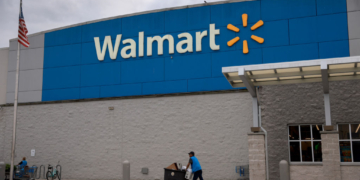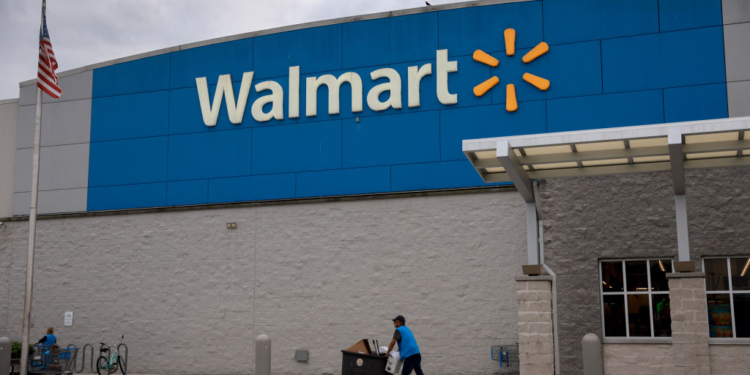Price increases could be on the horizon soon for American consumers after retail giant Walmart announced it plans to increase prices this month and early into this summer, citing tariffs affecting the cost of merchandise.
According to The Wall Street Journal, Walmart is the largest company to signal that prices on everyday goods may soon be coming thanks to tariffs, which will affect around 90% of Americans who regularly shop in the company’s stores.
“The magnitude and speed at which these prices are coming to us is somewhat unprecedented in history,” Walmart Chief Financial Officer John David Rainey said in an interview.
Ford Motor announced last week that prices on three of its most popular vehicles will be increasing due to tariffs, while luxury bag maker Hermes has also said U.S. are set to increase. The financial reports for Target, Lowe’s and Home Depot are also set to be released next week, which could result in the respective companies increasing prices to offset costs.
Retailers have yet to feel the full effect of tariffs, largely because many businesses stockpiled inventory in advance or delayed shipments from China. The U.S. economy has managed to remain stable, with unemployment and inflation holding steady despite the tariffs.
Meanwhile, Walmart saw strong sales through April 30, as bargain-hunting shoppers gravitated toward its deals and affordable store-brand products. Rainey noted that Walmart has not shared a profit forecast for the current quarter, partly because Walmart may absorb some of the costs to keep prices lower than competitors.
However, Rainey added that Walmart has already taken steps to increase prices on certain items after suppliers pass on higher costs.
Walmart and other retailers will likely take a strategic approach to pricing, carefully selecting which items to mark up in order to stay competitive while maximizing overall profits. Some non-tariffed products may see price increases, while tariffed items could remain relatively stable.
Additionally, Walmart is expected to leverage its expanding advertising business as a key driver of profitability.
The U.S. has reached a temporary deal with China, with tariffs on Chinese goods expected to drop from 145% to 30%, with Walmart executives warning business could face large disruptions if tariffs increase any higher.

























 Continue with Google
Continue with Google